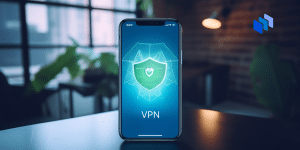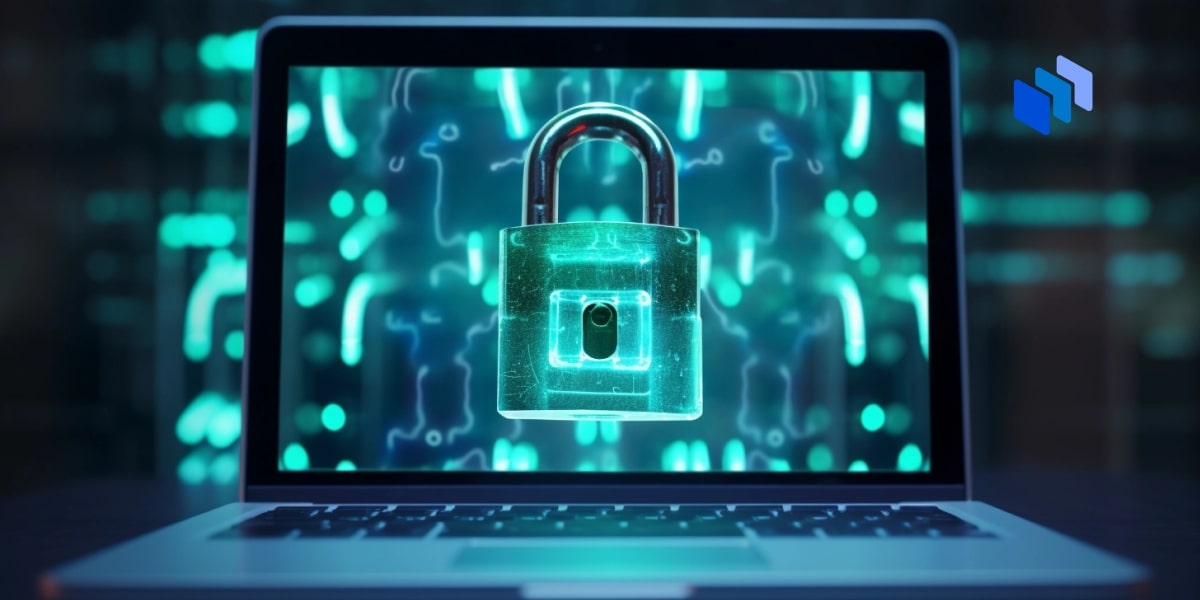Finding the best VPN service for a secure and reliable connection is crucial today. A VPN safeguards all your online activity, making it much more difficult for hackers, advertisers, and third parties to access your personal data.
In addition to security, the best VPN services will help you circumvent geo-restrictions and unblock content on your favorite streaming platforms like Netflix, Hulu, and Amazon Prime, no matter where you are.
We’ve tested over 20 of the most popular VPN providers on the market to ensure we can present accurate and informed recommendations. After analyzing performance, security features, and pricing, we’ve created the following shortlist of the best VPNs in 2024.
Best VPN of 2024 – Superb VPN Service with Unlimited Connections
- Unlimited simultaneous connections
- Impressive global server network
- Unblocks content on most popular streaming services
The Best VPNs At a Glance
- Surfshark – Best well-versed VPN due to its superb pricing, excellent speeds, and streaming quality
- ExpressVPN – Best VPN software for torrenting due to vast P2P server network and fast connections
- NordVPN – Feature-rich VPN service that’s ideal for privacy-conscious and advanced VPN users
- CyberGhost – Reliable VPN with exceptional encryption and an audited no-logs policy
- PureVPN – Best VPN for gaming that lets you play region-locked games and prevent ISP throttling
- IvacyVPN – Best VPN for streaming and geo-restriction bypassing
- TotalAV – Secure VPN service complemented by an antivirus and online protection features
- PrivadoVPN – Robust ad and third-party trackers blocking capabilities and parental controls
- IPVanish – Speedy VPN for iPhone and iPad users with a user-friendly interface
- Show Full Guide
In-Depth VPN Reviews for Complete Online Privacy
With so many options, picking the best VPN service can take time and effort. After analyzing 20 virtual private networks, we’ve selected a shortlist that excels in security, speed, pricing, server pool size, and user-friendly policies. Read on and find the most suitable VPN for you.
1. Surfshark – Best VPN with Unlimited Connections
| Best For | Overall |
|---|---|
| Server Network | 3,200+ servers in 100+ countries |
| Compatibility | Windows, Mac, iOS, Android, Linux, Browser extension |
| Max Devices | Unlimited |
| Price | Starting from $2.19/month |
Pros
- Excellent VPN speed results
- Extensive package of security features
- RAM-only servers
- Unlimited simultaneous connections
Cons
- No free plan
- Belongs to the 14 Eyes Alliance (Netherlands)
2. ExpressVPN – Best VPN for Gaming, with Fast Connection Speeds
| Best For | Gaming |
|---|---|
| Server Network | 3,000+ servers in 105+ countries |
| Compatibility | Windows, Mac, iOS, Android, Linux |
| Max Devices | 8 |
| Price | Starting from $6.67/month |
Pros
- Audited no-logs policy
- Strong geo-bypassing capabilities
- No IP leaks were detected
- Free password manager and threat manager
Cons
- Free trial available just on mobile devices
- Eight devices cap
- Owned by Kape Technologies
3. NordVPN – Most Secure VPN for Privacy-Conscious Users
| Best For | Privacy |
|---|---|
| Server Network | 6,400+ servers in 111 countries |
| Compatibility | Windows, Mac, iOS, Android, Linux |
| Max Devices | 10 |
| Price | Starting from $3.09/month |
Pros
- Extensive security features
- Excellent connection speeds
- RAM-only servers
- Diverse server locations
Cons
- No free VPN plan
- No ad blocker or malware scanner with the cheapest plan
- Fairly clustered interface
4. CyberGhost – Top-Rated VPN for Strong Encryption
| Best For | Encryption |
|---|---|
| Server Network | 11,500+ servers in 100+ countries |
| Compatibility | Windows, Mac, iOS, Android, Linux |
| Max Devices | 7 |
| Price | Starting from $2.19/month |
Pros
- 11,500+ servers worldwide
- Optimized servers for gaming, streaming, and torrenting
- 45-day money-back guarantee
Cons
- Significant speed reduction
- Limited features
- Owned by Kape Technologies
5. PureVPN – Best VPN Software for Bypassing Geo-Restrictions
| Best For | Worldwide server coverage |
|---|---|
| Server Network | 6,500 servers in 65+ countries |
| Compatibility | Windows, Mac, iOS, Android, Linux |
| Max Devices | 10 |
| Price | Starting from $3.19/month |
Pros
- Passed an independent security audit
- Easily accessible on various devices
- Intuitive interface
- Numerous cheap add-ons
- Great pricing
Cons
- Android and iOS apps lack some advanced features
6. IvacyVPN – Best VPN Service Provider for Streaming
| Best For | Fast, buffer-free streaming |
|---|---|
| Server Network | 5,700+ servers in 70+ countries |
| Compatibility | Windows, Mac, iOS, Android, Linux |
| Max Devices | 10 |
| Price | Starting from $1.17/month |
Pros
- Cost-effective long-term plans
- Feature-rich
- Diverse and numerous server locations
- A good number of protocols
- DNS and IPv6 leak protection
Cons
- Outdated interface
7. TotalAV – Best VPN Protection With Antivirus Software
| Best For | Top security |
|---|---|
| Server Network | 50+ servers in 30+ countries |
| Compatibility | Windows, Mac, iOS, Android, Linux |
| Max Devices | 5 |
| Price | Starting from $3.25/month |
Pros
- Comes as a part of an all-in-one security package
- User-friendly apps and interface
- Robust encryption methods
- Data breach monitoring
- Great customer support
Cons
- Very limited server fleet
8. PrivadoVPN – Best Personal VPN Software for Beginners
| Best For | Less-experienced users |
|---|---|
| Server Network | 300 servers in 47 countries |
| Compatibility | Windows, Mac, iOS, Android, Linux |
| Max Devices | 10 |
| Price | Starting from $1.99/month |
Pros
- Great for beginners
- No-log policy
- Has its own servers
- Streaming and torrenting at reasonable speeds
Cons
- Only 300+ servers
9. IPVanish – Best VPN Service for Speed
| Best For | Speed |
|---|---|
| Server Network | 2,200+ servers in 52+ countries |
| Compatibility | Windows, Mac, iOS, Android |
| Max Devices | Unlimited |
| Price | Starting from $2.19/month |
Pros
- Adjustable app
- Great for mobile device users
- Connect an unlimited number of devices
- Fast download speed
Cons
- Lacks Linux app
Techopedia’s Top VPN Picks Compared for 2024
Here we compare top VPN services in terms of key features, price, and server availability. Take a look at how our top VPN providers fare against each other:
| Provider | Best For | Cheapest Plan | Server Network | Max Devices | Free Plan |
|---|---|---|---|---|---|
| Surfshark | Unlimited Connections | $2.19/month | 3,200 servers in 100 countries | Unlimited | No |
| ExpressVPN | Gaming | $6.67/month | 3,000+ servers in 105+ countries | 8 | No |
| NordVPN | Privacy | $3.09/month | 6,400+ servers in 111 countries | 10 | No |
| CyberGhostVPN | Encryption | $2.19/month | 11,500+ servers in 100+ countries | 7 | No |
| PureVPN | Worldwide Server Coverage | $3.19/month | 6,500+ servers in 65+ countries | 10 | No |
| IvacyVPN | Fast, Buffer-Free Streaming | $1.17/month | 5,700+ servers in 70+ countries | 10 | No |
| TotalAV | Security | $3.25/month | 50+ servers in 30+ countries | 5 | No |
| PrivadoVPN | Less-Experienced Users | $1.99/month | 300+ servers in 47+ countries | 10 | Yes |
| IPVanish | Speed | $2.19/month | 2,200 servers in 52+ countries | Unlimited | No |
How We Review and Test VPN Services
20 VPNS TESTED
25 DATA POINTS MEASURED
300+ HOURS TESTING
500+ USER REVIEWS READ
To provide our readers with accurate and well informed recommendations, we tested 20 leading VPN services to find the best in the market. Our methodology consists of the following criteria:
- Security Features: We made sure that the provider uses standard security features and a secure tunneling protocol.
- Privacy Policies: We looked for VPNs that come with a no-logs policy, and verify the extend to which user privacy is upheld.
- Speed: We run speed tests three times a day and draw an average of the result to see how much of the original broadband speed is retained.
- Compatibility: We ensure the VPN provider offers multiple simultaneous connections and is compatible with the most popular operating systems.
- Geo-unblocking: We test whether the VPN service can unlock different libraries (content available in different countries) on the most popular streaming platforms.
- Customer Experience: When researching products and services, we read real user experiences and test out their customer support channels ourselves.
- Price and Value for Money: We set out to recommend reasonably priced products that offer value for money.
What is a VPN?
By creating a secure encrypted tunnel a VPN service guarantees that no hackers, third party snoopers, or advertisers cannot steal your data and use it to their own benefit. Additionally, it allows you to change your original IP address, meaning you will be able to access news or geo-restricted content from anywhere in the world.
How Does a VPN Work?
From there, decrypted request gets sent to the internet and once the response is found, the gets encrypted on the VPN server and sent back to your device. To learn a little more about the encryption process, check out our article on how VPNs work.
Why Do I Need VPN Protection?
You may be thinking that if you have nothing to hide, you don’t need a VPN – but they can actually still provide some extremely useful services for you without going anywhere near anything shady.
At its core a VPN – a virtual private network – allows you to anonymize your web activity by masking your IP address and making it invisible to your internet service provider (ISP). This stops hackers and advertisers from tracking your connection, keeping your traffic private and secure.
In an age where online privacy is increasingly under threat, a VPN stands as a crucial guardian of anonymity in the digital realm. By masking your IP address and encrypting your internet traffic, a VPN shields your online activities from prying eyes. The best VPN solutions provide a vital layer of protection, preserving your right to privacy in an ever-evolving online landscape.
Many people use public Wi-Fi without knowing their data can be easily compromised. A VPN can keep your information away from any potential intruders. If you use restricted networks, a VPN can also help you to bypass firewalls and access blocked content.
On top of this, popular streaming services like Netflix, Amazon Prime, Hulu, and BBC iPlayer are unavailable in many countries.
A top VPN service helps you navigate geo-restrictions and access your favorite streaming content and content libraries that are unavailable from your location. And it can do all this without having any impact on your connection speed.
Which Top VPN Provider Is the Fastest?
A fast and lag-free connection is very important to any user. Ideally, you would want the VPN to not impact your original broadband speed at all. However, since the internet traffic is rerouted via an additional VPN server, it’s only natural for a minimal speed drop to occur.
But the speed drop should be so minimal that a typical user would not even notice it. So we’ve extensively tested the performance of our top 9 providers, and here’s how they compare in terms of upload and download speeds.
| Average Download Speed Retention | Average Upload Speed Retention | |
|---|---|---|
| Surfshark | 73.43% | 79.82% |
| ExpressVPN | 49.91% | 52.55% |
| NordVPN | 73.37% | 73.39% |
| CyberGhost | 64.16% | 32.05% |
| PureVPN | 68.65% | 59.96% |
| IvacyVPN | 70.73% | 68.45% |
| TotalAV | 50.75% | 63.85% |
| PrivadoVPN | 68.90% | 81.65% |
| IPVanish | 69.75% | 68.70% |
Based on our findings, both Surfshark and NordVPN were the fastest VPN providers, with the best speed retention results.
How to Find the Best VPN Service
VPN service providers typically offer their customers a variety of privacy options and VPN security features, including the ability to connect to servers in specific countries and support for different encryption protocols.
The effectiveness and reliability of a VPN service can vary based on several factors, including the provider’s VPN hardware and the network infrastructure they are using. When evaluating a VPN service provider, there are several key features to consider:
Security
The VPN service should include a VPN firewall, access to the best VPN protocols, and strong encryption, such as AES-256, to protect data from unauthorized access.
The best VPN providers use VPN tokens to provide an additional layer of authentication and security within a VPN. Many enterprise versions also provide leak protection features to prevent client IP addresses from being exposed.
Logging
The VPN service should have a strict no-logs policy that clearly states the provider does not keep information about user activity.
The best VPN providers are transparent about their quality assurance tests and have their logging practices independently audited by a reputable third-party company.
Performance
The VPN service should provide fast speeds so that users don’t experience latency issues when they are streaming video, torrenting files, or playing online games.
The best VPN services have a wide range of server locations, provide unlimited bandwidth, and use VPN concentrators to create and manage multiple VPN connections efficiently. It’s also worth considering the number of servers and whether the service offers servers optimized for specific use cases.
Device Support
The VPN service should be compatible with computers, smartphones, and tablets. A top 10 VPN service will have a user-friendly interface and provide good customer support.
Are VPNs Safe to Use? What Makes VPNs Secure?
You may be wondering whether VPNs are safe to use. Yes, they are perfectly safe to use on a daily basis. Premium VPNs are meant to enhance your online security by offering numerous security features and extensive privacy measures.
However, not all VPNs are equally secure. For starters, free VPNs are often seen as security-compromising rather than enhancing tools. Free providers offer fewer security tools, push pop-up ads, and, in extreme cases, might even be infested with malicious software.
For that reason, we suggest opting for reliable and secure VPN software that includes:
- Base country. Make sure that your chosen VPN is based in a privacy-friendly jurisdiction that does not legally require VPN providers to store and collect user data. NordVPN, which is based in Panama, is a good example of this.
- No-log policy. Such policy states that the provider is not collecting and storing any of its user’s personal data or activity logs. While the majority of providers do offer this privacy measure, only the ones that have undergone an external audit are truly secure.
- RAM-only servers. A safe VPN provider often uses RAM-only servers, which are wiped clean after each reboot. This further supports that no user data is stored on the provider’s end.
- Encryption. By using highly secure AES-256 encryption cypher secure VPNs like Surfshark, ExpressVPN, or NordVPN encrypt user data, making it virtually impossible for third parties to access your personal data.
- Kill switch. An automatic kill switch disconnects you from the internet immediately in case the VPN connection fails. This way, your real IP address is not leaked, and your online activities remain safe.
It’s worth noting that some countries or regions consider VPN use an illegal activity, making it unsafe to use in that region. The consequences of using a VPN illegally might result in fines or even imprisonment, so be sure to check your local laws.
Are There Drawbacks to VPNs?
Using a VPN is a great way to browse the internet securely and privately and to get around surveillance and censorship from your government and your Internet Service Provider. That said, there are some small downsides to using a VPN for private internet access.
- Price – We really don’t recommend using “free” services that come with severe usage restrictions or, in the worst cases, may otherwise expose your data to malicious actors. This is obviously the exact opposite of what you want to happen if you’re seeking to secure your connection.
- Connection speed – Due to the technicalities of re-routing your traffic, you may also have a slight reduction in your connection speed. Though the best VPN providers offer lightning-fast services that are ideal for gaming and streaming.
- Legality – While using a VPN is entirely legal in most parts of the world, some countries may limit or ban VPN use entirely. Some of the countries that are actively banning VPN usage are Belarus, Iraq, North Korea, and Turkmenistan. Additionally, India, Russia, and China are heavily monitoring and limiting VPN use. So do consider the law around VPN use in your region, as in some cases, such acts may lead to fines or even imprisonment.
Free VPN vs. Paid VPN – Which Is Best for You?
Free VPNs come at a competitive price point, but they typically also have some major drawbacks. Free services often require you to watch ads, while others have limited bandwidth or server options and are intended to encourage you to upgrade to a paid VPN service. Due to that, free VPNs are often not suitable for streaming or torrenting.

“Some free VPN services tend to collect users’ data and sell it to third-party advertising companies or the authorities. Before signing up, users should always check service policies and learn about how their data is being processed. A lot of potentially sensitive personal information is included in usage logs, and while most providers claim to run no-log VPN services, some of them might still collect extensive connection logs. That’s a problem because third parties could use this information about your internet access to identify you.”
From our research, we identified PrivadoVPN and ProtonVPN as candidates for the best free VPN. ProtonVPN likely comes out ahead, though, offering access to servers in the US, the Netherlands, and Japan, and with no limitations on data use.
Even better, the provider includes a VPN kill switch with the free service – immediately cutting data transfer in case the VPN connection drops, meaning your connection remains secure and private whatever happens.
Nevertheless, while free virtual private networks can do an adequate job of hiding your IP address when visiting sites, they fall short when compared to VPN plans, so it’s better to look for an affordable plan rather than a free solution.
Subscribing to a cheap VPN service will generally give you access to thousands of servers spread around the world – including for countries like Turkey, Russia, and China.
VPN Market Trends and Statistics
Due to constantly looming cyber security threats, internet users are constantly looking for effective ways to remain secure online. Since VPN software is an affordable yet highly reliable tool, it’s no surprise that the VPN market has been experiencing constant growth, with the current market worth standing at $45 billion.
Key Findings
- Naturally, more and more people are becoming aware of the tool. 88% of Americans recognize what a VPN is and what it is used for, with general online security being the prime reason.
- In the first half of 2023 (H1 2023), VPN downloads reached 130 million (Atlas VPN, 2023).
- Global VPN stats for June 2023 noted that a high number of people were concerned about VPNs being safe. The most frequent concerns included a risk of malware infections (33%), zero-day exploits + APT (29%), and DDoS attacks (24%). However, participants have noted that they are less likely to have safety concerns if the VPN provider has a strong brand image and no prior data leak incidents.
- Ease of use is another factor that concerns potential users, with nearly 21% of survey participants noting that the software is too difficult to set up. However, once the users overcome the initial setup, nearly 70% of the end-users use a VPN daily or almost daily (Zscaler, 2023).
Overall, VPN statistics indicate that the market is constantly growing and attracting new users daily. While there are quite a few safety concerns surrounding VPN use, VPN providers are constantly improving their services to better protect against constantly developing online threats.
Conclusion – Considering a VPN? Make the Right Choice for Your Needs
There are a whole range of virtual private networks to pick from today, and the best VPN service providers face some tough competition. Nevertheless, there are a handful of market leaders that deliver a truly outstanding service when it comes to points like speed, safety, security, and trustworthiness.
We’ve picked the VPN best for each use case and created a list that caters to distinctive tastes. You can select different VPN types depending on your personal needs and goals. But one thing is certain – whichever you choose, you won’t regret it.
So, what is the best and most trusted VPN? Based on our research, we can’t recommend Surfshark highly enough, and it’s often cited as the best premium VPN service on the market. Try it now, risk-free, with its money-back guarantee.
FAQs
What is a VPN connection?
Are there good free VPNs?
How do I know if my VPN is working?
How much does a VPN cost on average?
What is the best VPN service provider in 2024?
What is the best VPN Service on Reddit?
What is a VPN used for?
Which VPN is the most secure?
Which VPN has the best customer service?
References
- The great firewall of China: Xi Jinping’s internet shutdown (The Guardian)
- Virtual Private Network (VPN) Market (Precedence Research)
- Web Cache Location and Network Design in VPNs (Università del Sannio)
- WireGuard homepage (WireGuard)
- 2023 VPN Risk Report (ZScaler)
- 2024 VPN Usage Statistics (Security.org)









